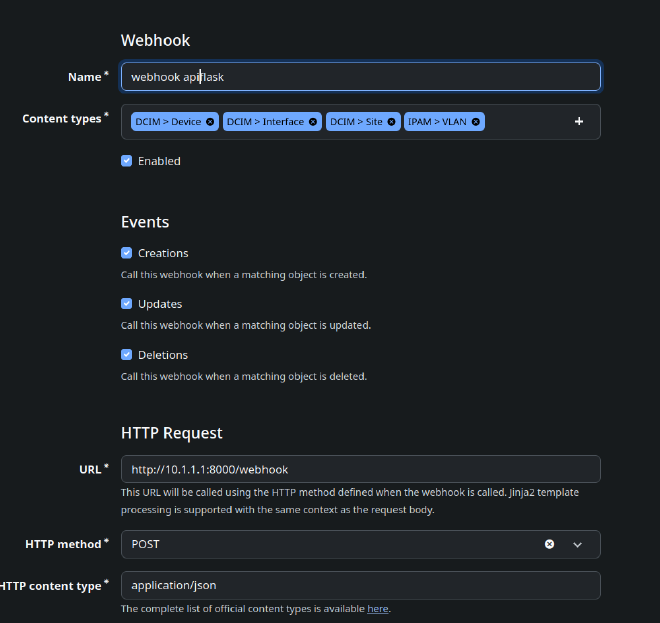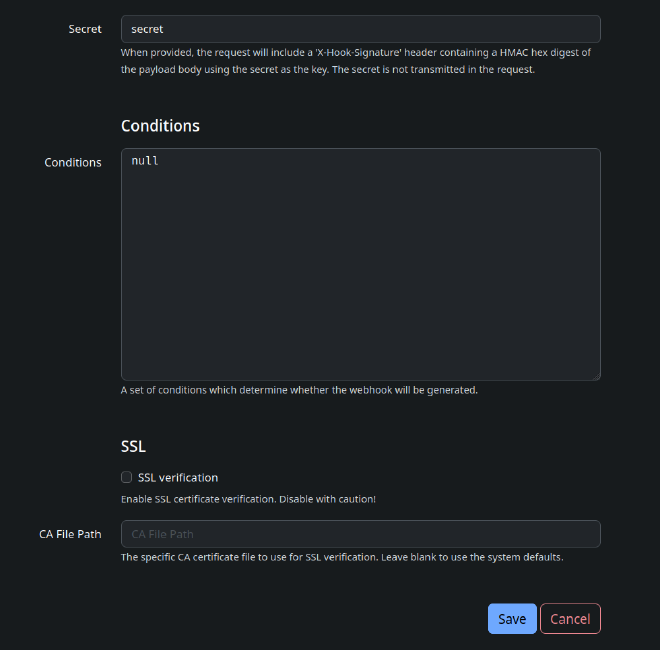This little code snippet is the base of my Netbox Webhook Listener written in APIFlask. APIFlask is a package which based on Flask but specialized on REST API.
Github Gist: Netbox Webhook Listener written with APIFlask
Code#
import hmac
from apiflask import APIFlask
import logging
from flask import request
from apiflask import Schema, abort
from apiflask.fields import String, Dict, DateTime, UUID
APP_NAME = "netbox-webhook-listener"
WEBHOOK_SECRET = "secret"
class WebhookResponse(Schema):
result = String()
class WebhookData(Schema):
username = String()
data = Dict()
event = String()
timestamp = DateTime()
model = String()
request_id = UUID()
snapshots = Dict()
app = APIFlask(__name__, title="Netbox Webhook Listener", version="1.0")
logger = logging.getLogger(APP_NAME)
logger.setLevel(logging.INFO)
formatter = logging.Formatter("%(asctime)s %(name)s %(levelname)s: %(message)s")
file_logging = logging.FileHandler(f"{APP_NAME}.log")
file_logging.setFormatter(formatter)
logger.addHandler(file_logging)
def do_something(data):
logger.info("WebhookData received:")
logger.info(f"Raw data: {data}")
logger.info(f"Request ID: {data['request_id']}")
logger.info(f"Username: {data['username']}")
logger.info(f"Event: {data['event']}")
logger.info(f"Timestamp: {data['timestamp']}")
logger.info(f"Model: {data['model']}")
logger.info(f"Data: {data['data']}")
logger.info(f"URL in data: {data['data']['url']}")
@app.post('/webhook')
@app.input(WebhookData(partial=True))
@app.output(WebhookResponse)
def webhook(data):
x_hook_signature = request.headers.get('X-Hook-Signature', None)
content_length = int(request.headers.get('Content-Length', 0))
if content_length > 1_000_000:
# To prevent memory allocation attacks
logger.error(f"Content too long ({content_length})")
abort(400, "Content too long")
if x_hook_signature:
# Check signature
raw_input = request.data
input_hmac = hmac.new(key=WEBHOOK_SECRET.encode(), msg=raw_input, digestmod="sha512")
if not hmac.compare_digest(input_hmac.hexdigest(), x_hook_signature):
logger.error("Invalid message signature")
abort(400, "Invalid message signature")
logger.info("Message signature checked ok")
else:
logger.error("No message signature to check")
abort(400, "No message signature to check")
# Do something here
do_something(data)
return {"result": "ok"}
if __name__ == "__main__":
app.run("0.0.0.0", 8000)
Use it in Netbox#
Goto Webhooks and create a new webhook. Choose your content types and events. Set the URL and Secret to your Webhook listener.


